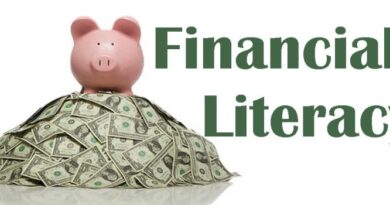Financial Freedom: Live Life on Your Own Terms
Financial freedom is a concept that has been gaining traction in recent years, and for good reason. It represents the ability to live life on your own terms, without being dictated by your financial situation. It’s about having the freedom to pursue your passions, travel the world, spend time with loved ones, and give back to your community.
While financial freedom may seem like a distant dream, it’s actually achievable for anyone with the right mindset and strategies. Here are a few simple steps you can take to start your journey towards financial freedom:
1. Set clear financial goals.
What does financial freedom mean to you? Do you want to be able to retire early? Travel the world? Pay off your debts? Once you know what you’re working towards, you can start to create a plan to achieve it.
2. Track your income and expenses.
The initial step to taking control of your finances is to understand where your money is going. Track your income and expenses for a month or two to see where you can cut back.
3. Create a budget.
A budget is simply a plan for how you’re going to spend your money each month. Once you’ve tracked your income and expenses, you can create a budget that allocates your money towards your financial goals.
4. Increase your income.
There are a few ways to increase your income, such as getting a raise, starting a side hustle, or investing in your education. The more money you earn, the more you can save and invest towards your financial goals.
5. Save and invest.
The most important thing you can do to reach financial freedom is to save and invest your money. Saving allows you to build an emergency fund, while investing helps your money grow over time.
6. Automate your finances.

One of the most amazing ways of keeping focused with your monetary objectives is to computerize your funds. This implies setting up programmed moves from your financial records to your investment account or speculation account.
7. Get a financial advisor.
If you’re feeling overwhelmed, consider working with a financial advisor. A financial advisor can help you create a personalized financial plan and provide guidance as you work towards your goals.
FAQ:
1. What is financial freedom? Financial freedom refers to a state where an individual has sufficient financial resources to cover their living expenses and achieve their goals without being dependent on a traditional job or anyone else. It allows you to live life on your terms, pursuing what truly matters to you.
2. How is financial freedom different from being wealthy? While wealth often implies having a significant amount of money or assets, financial freedom is more about having enough passive income to sustain your lifestyle without relying on a 9-to-5 job. Financial freedom is about the freedom of choice, not just accumulating wealth.
3. How can I achieve financial freedom? Achieving financial freedom involves careful financial planning, budgeting, investing wisely, and creating multiple streams of passive income. It also requires managing debt, living below your means, and adopting a long-term mindset for your financial goals.
4. What role does budgeting play in achieving financial freedom? Budgeting is a crucial component of financial freedom. It helps you track your income, expenses, and savings, enabling you to identify areas where you can cut costs and allocate more money toward savings and investments.
5. Is investing necessary for financial freedom? Yes, investing is a key element in achieving financial freedom. By investing in assets that generate passive income, such as stocks, real estate, or businesses, you can build wealth and create a sustainable income stream for the future.
6. How do I determine my financial freedom number? Your financial freedom number is the amount of passive income required to cover your living expenses. Calculate this by determining your monthly expenses and multiplying them by 25 to 30. This is based on the concept of the 4% rule, where you can safely withdraw 4% of your investment portfolio annually without running out of money.
7. Can anyone achieve financial freedom? Yes, anyone can achieve financial freedom with the right mindset, discipline, and financial strategies. It’s important to set clear financial goals, consistently save and invest, and make informed financial decisions over time.
8. What are some common obstacles to achieving financial freedom? Common obstacles include excessive debt, lack of financial education, overspending, and not having a clear financial plan. Overcoming these obstacles requires commitment, financial literacy, and making intentional choices to prioritize long-term financial well-being.
9. How long does it take to achieve financial freedom? The time it takes to achieve financial freedom varies for each individual. Factors such as income, expenses, savings rate, and investment returns all play a role. Setting realistic goals and staying committed to a long-term financial plan are essential.
10. Is financial freedom only about money? While money is a significant aspect, financial freedom is ultimately about having the freedom to live life on your own terms. It involves pursuing your passions, spending time with loved ones, and making choices that align with your values and goals.
Remember, achieving financial freedom is a journey, not a destination. It requires continuous learning, adaptation to changing circumstances, and a commitment to making choices that align with your financial goals.




